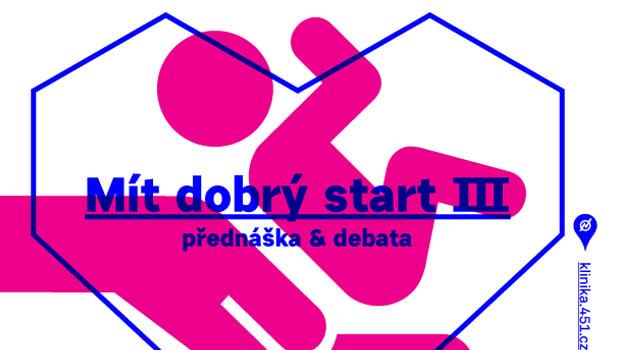Stázka Brodníčková: I wouldn't have come this far without my foster mother

This is the story of a girl in the Czech Republic named Stázka whose biological mother is Romani. In September last year she enrolled in the secondary school for pedagogy in Blansko.
The only reason that is remarkable is that up until the fourth grade, Stázka was still attending what used to be called a “special school” for the mentally disabled. “If it weren’t for Mama Hanka, I would never have made it this far,” she confides, referring to her foster mother.
At the age of 11, Stázka met Hanka Brodníčková, an already-experienced foster mother who brought her home from a Klokánek facility run by the Foundation for At-Risk Children (Fond ohrožených dětí). With the aid of intensive care and an individualized approach, her foster mother managed miracles: Not only did Stázka cope with transferring into a mainstream primary school, she was later accepted into the state-run secondary school where she has now successfully begun her first year receiving support also from the Roma Education Fund..
“When Stázka first came to us she was in the process of undergoing a diagnostic trial period at the so-called special school in Litomyšl, but after a couple of months the conclusion was inescapable that she was not a child for whom such a ‘practical school’ was appropriate. My degree is in special needs pedagogy and it was clear to me that she had just been neglected for a long time,” Hanka tells us.
After half a year it was apparent that Stázka basically loved learning. That was also confirmed by a psychologist whom the family found.
“We had to make up the difference between the curriculum of the special school and the mainstream school. At the special school they did not have English, and the level of Czech and mathematics was significantly delayed. We had to enroll Stázka two grades behind so she would have a chance to catch up,” her foster mother says.
The transition was a success. Thanks to Hanka’s intensive care, Stázka entered the fifth grade with the same level of preparation as her fellow pupils.
The beginning at Klokánek
Stázka spent a total of 2.5 years at the Klokánek facility. She and her sister arrived there after practically living on the street.
At the age of eight, rather than spend evenings with their drug-addicted mother, Stázka and her sister used to sleep at the bus station. “We didn’t even have blankets, we would beg. We were afraid to be at home with our mother because she took drugs and was always scaring my sister and I,” Stázka recalls of her harsh earlier childhood.
Fortunately, a social worker ultimately noticed the girls and brought to them to her office to address their situation. “She gave us lollipops, we were terribly hungry, so we ate them all, it was the first time we had ever had something like that,” Stázka remembers of the event that marked the beginning of her new life.
Ultimately the sisters were placed with the Klokánek facility in Pardubice and enrolled in the local “practical school”. They had previously attended another such school but their attendance had been sporadic.
“When we were living with our own Mom we practically never went to school,” Stázka says. When she first met Brodníčková, the foster mother was already caring for three other girls.
They are Ajka, who is an adult today but remains in her foster mother’s care, her sister Lucka, and Barborka, a child with autism spectrum disorder. Stázka first visited the Brodníčková family for visits and then moved in with them permanently after three months.
Despite her difficult beginnings, Stázka is now a high school student and looking forward to working as an au pair in America someday. She is clear about what she wants to do in the future – her dream is to become either a lawyer or a teacher: “I would like to teach Romani children, to give them a chance, to support them. I would aid them with not giving up even if people curse them, with demonstrating to the world that they are gifted.”
Irreplaceable arms
Stázka began calling her foster mother “Mom” absolutely spontaneously, and it was Hanka who aided the girl with developing her natural intelligence and talent. Even though she has been accepted to her particular high school primarily because of her good grades, she made it through the talent examinations successfully mainly thanks to her versatile interests.
“I went to choir, to piano lessons, to self-defense class, to aerobics, and to a drama group. I’m always going somewhere after school,” Stázka says.
Those good grades didn’t come for free, though. “Stázka didn’t have certain habits, she wasn’t used to doing homework when she came home from school. She had big gaps that we had to gradually fill in. In the beginning she was able to read three pages maximum, but with time she could read an entire book in just a couple of days,” her foster mother confirms.
Stázka’s story is evidence that growing up in a family is the best way forward for a child, and she confirms that even though children’s homes are very well-equipped today, it is best to grow up in a family, even a foster one. “At Klokánek you have everything, you get what you want for Christmas. However, you don’t have a Mom’s love there,” she says.
“The very worst thing is when the ‘aunties’ come and go there; you fall in love with one, and then they leave after a week. That’s the worst thing for a child,” Stázka resolutely concludes.
According to data from the Institution for Information in Education (as of 2011) there are still more than 8 000 children living in children’s homes in the Czech Republic whose chance of successful inclusion into society declines with each year that they remain in institutional care, as younger children are adopted more frequently than older ones. It is possible for an adopted family to change the life of even a 10-year-old child, though.
Hanka Brodníčková makes no secret of her convictions in that regard: “If Barborka had stayed in the kid’s home she would probably be living in a social care institution today, but instead she has achieved excellent results in school and a chance at an academic career, even though her original diagnosis was one of profound mental retardation. If Lucka had remained in the kid’s home, she might be living on the street today – she wouldn’t be volunteering, or studying at a Higher Vocational School, or working as a tutor in an after-school club, and Stázka, if she had remained in the kid’s home, would have had difficulty even graduating from some apprenticeship.”
The foster mother has written two books about her experiences with foster care under the pseudonym Ludmila Janáková, a book about Ajka and Lucka called “Gifts Are Not For Return” (Dary se přece nevracejí) and a book about the first couple of years she spent with Barborka called “I’d Be Afraid To Be In Heaven Alone” (Sama bych se v nebi bála). She is planning to write another book about the rest of her years with Barborka, and naturally one about her life with Stázka also.
First published (in Czech) in the print edition of the Romano voďi monthly (December 2016).
